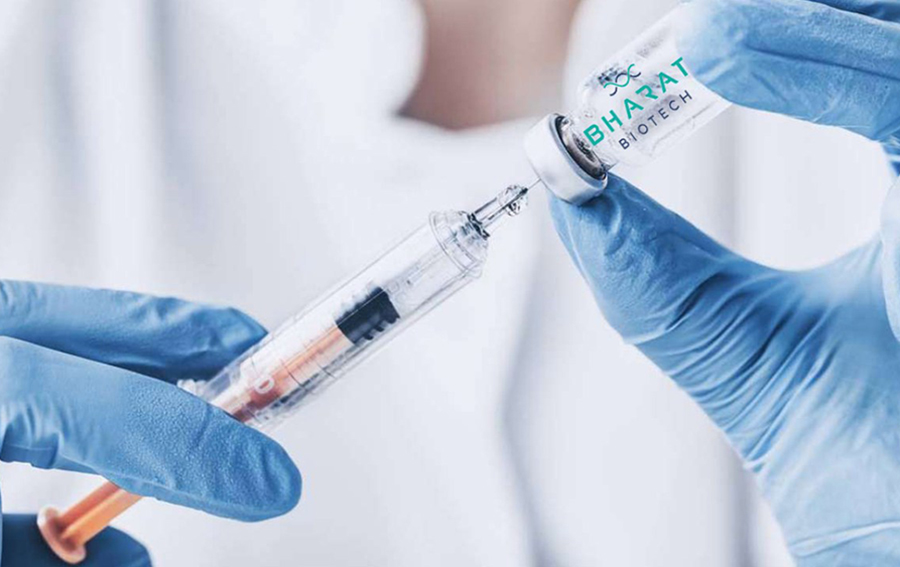China has announced that it will take part in a World Health Organization (WHO) led Covax initiative to provide a coronavirus vaccine to developing nations, filling a void in global health leadership after the United States President, Donald Trump spurned the program and withdrew his country’s participation from the organization.
This disclosure was made by the Chinese Foreign Ministry spokeswoman, Hua Chunying, in a statement on Friday, October 9, 2020.
READ: WHO to secure initial COVID-19 vaccine for 20% of Africans
Hua Chunying in the statement said, “Beijing on Thursday joined the $18 billion Covax initiative that aspires to give lower-income countries the same access to vaccines as wealthier nations. The move came despite China leading the world with several vaccines in advanced stages of R&D and with ample production capacity. We are taking this concrete step to ensure equitable distribution of vaccines, especially to developing countries, and hope more capable countries will also join and support Covax.”
She disclosed that China will be purchasing COVID-19 vaccines for 1% of its population, or 15 million people, through this WHO backed initiative so as not to reduce the vaccine available to other countries.
READ: China’s Covid-19 vaccine may be ready for general public in November 2020
The move, which comes barely 3 weeks after a deadline set by the initiative, allows China to positively contrast itself with the U.S. as tensions between the world’s two biggest economies spiral on different fronts, ranging from trade to technology and human rights.
It can be recalled that the Trump administration suspended its participation from the WHO activities, which includes financial commitment, and refused to join the Covax initiative, with a White House spokesman saying the U.S. wouldn’t be constrained by multilateral organizations influenced by the corrupt World Health Organization and China.
READ: Soybean Futures reach 2-year high, following U.S sales to China
The Chinese President, Xi Jinping, had in May, promised that vaccines developed by China would be made a global public good to be shared by all. The decision could also help the country’s image following widespread criticism from abroad over how it handled the initial outbreak in the central city of Wuhan, where Covid-19 first emerged last year.
An Associate Professor in health security at the City University of Hong Kong, Nicholas Thomas said, “In many ways this is a soft power win for China, coming amidst a slew of negative reports in other fields in recent weeks. It is a win made all the easier by President Trump’s impetuous decision to withdraw from the WHO and his short-sighted refusal to commit the U.S. to Covax. Now anything America does in this area will be seen as catching up with China when the U.S. was expected to lead.”
READ: Smartphone to be used for daily tracking of first set to receive COVID-19 vaccine
China has at least four experimental vaccines in the final stages of clinical trials, and is also in talks with the WHO to have its domestically made vaccines assessed for international use.
Gavi on its website revealed that self-financing countries in COVAX scheme can request vaccine doses sufficient for 10-50% of their populations. It also said that funded countries will receive enough doses to vaccinate up to 20% of their population in the longer term.
The COVAX initiative is led by the Coalition for Epidemic Preparedness Innovations and the vaccine alliance Gavi. It currently has nine vaccines in development and nine under evaluation in its portfolio, with a goal to secure 2 billion doses by 2021.
Seth Berkley, chief executive officer of Gavi, in an emailed stated that over 170 countries are now involved with Covax, vaccine deals are underway and the program is approaching its initial fundraising target to support lower-income countries.
He said, “China’s decision gives even more momentum to our efforts to ensure global, equitable access to Covid-19 vaccines.”
Nairametrics had reported that China has been quite aggressive in the development of vaccines against the coronavirus disease. Nine of its vaccine candidates have entered clinical trials, and four of them got approval for final-stage Phase III clinical trials in foreign countries. Indonesia, Bangladesh, Pakistan, Morocco and Egypt have formal agreements with China’s major vaccine manufacturers.
















